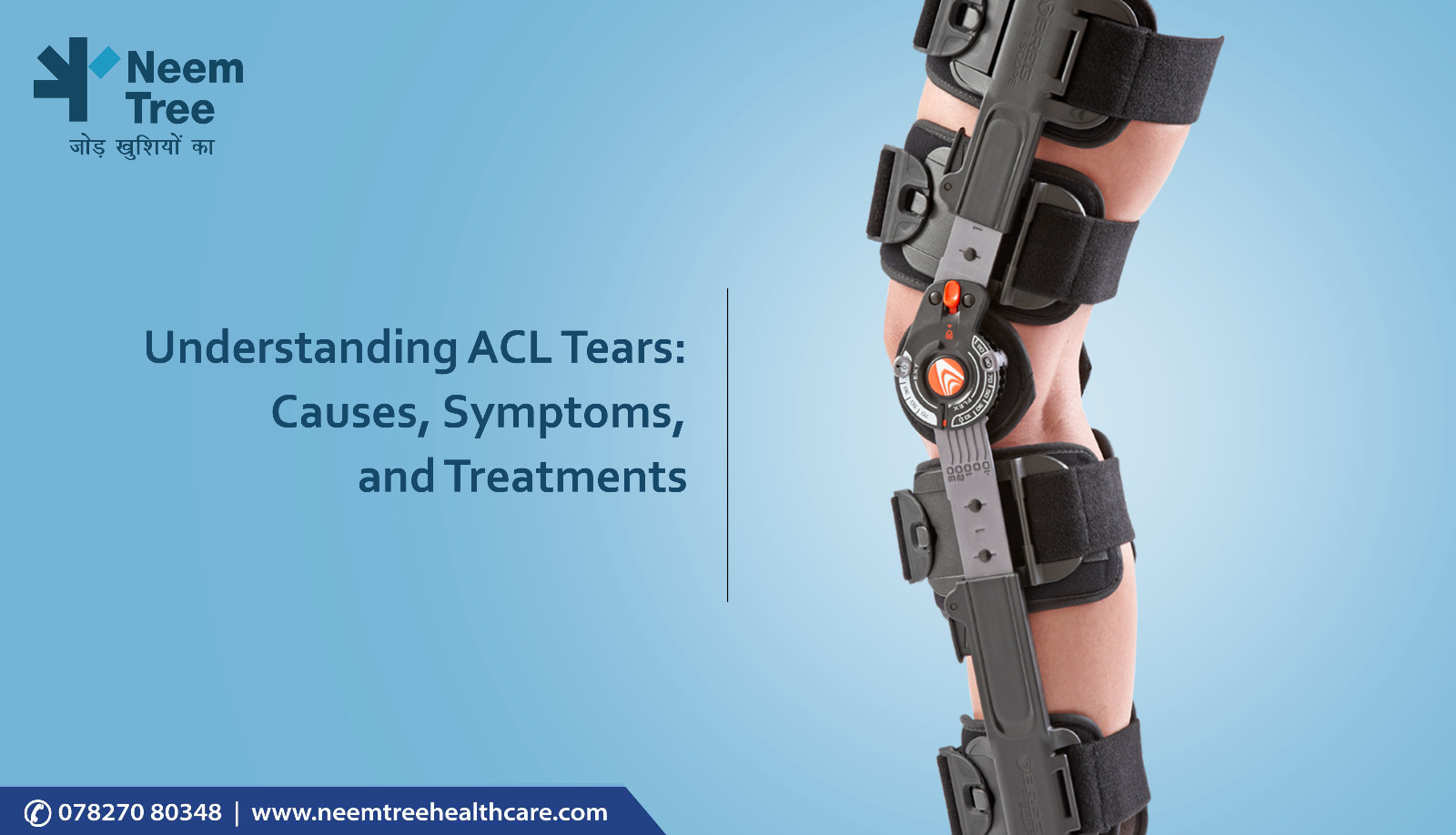
06 April 2024

Understanding ACL Tears: Causes, Symptoms, and Treatments
The Anterior Cruciate Ligament (ACL) is a critical structure in the knee joint, providing stability and support during movements such as running, jumping, and pivoting. Unfortunately, ACL tears are common injuries, particularly among athletes engaging in sports that involve sudden stops, changes in direction, or direct blows to the knee. Understanding the causes, symptoms, and treatments of ACL tears is essential for both athletes and the general population alike.
ACL tears often occur during sports activities, but they can also happen during everyday movements or accidents. Some common causes include:
1. Sudden Stops or Changes in Direction: Abrupt movements, such as pivoting or cutting, can place excessive stress on the ACL, leading to tears.
2. Direct Blows to the Knee Impact to the knee, such as from a collision or fall, can result in ACL injuries.
3. Poor Landing Mechanics: Improper techniques during jumps or landings, especially with the knees in a vulnerable position, can increase the risk of ACL tears.
4. Muscle Imbalances or Weakness: Weakness or imbalance in the muscles surrounding the knee joint can compromise its stability, making it more susceptible to injuries like ACL tears.
Recognizing the signs and symptoms of an ACL tear is crucial for prompt diagnosis and treatment. Common indicators include:
1. Pain: Immediate pain at the time of injury, which may subside quickly due to shock but return later.
2. Swelling: Significant swelling within a few hours of the injury, caused by bleeding within the knee joint.
3. Instability: A feeling of the knee giving out or buckling, especially during weight-bearing activities.
4. Audible Popping Sound: Some individuals report hearing or feeling a popping sensation at the time of injury, indicating a tear.
5. Limited range of motion: Difficulty fully extending or bending the knee, accompanied by stiffness.
The management of ACL tears depends on various factors, including the severity of the injury, the individual's activity level, and their overall health. Treatment options may include:
1. R.I.C.E. Therapy: Rest, Ice, Compression, and Elevation are initial steps to reduce pain and swelling in the acute phase of the injury.
2. Physical Therapy: A structured rehabilitation program focused on strengthening the muscles around the knee joint and improving flexibility can help restore stability and function.
3. Bracing: The use of a knee brace may provide additional support during activities, particularly for individuals who wish to return to sports without surgery or as a temporary measure before surgery.
4. Surgical Reconstruction: For individuals who wish to return to high-demand activities or who have associated injuries, such as meniscus tears, surgical reconstruction of the ACL may be recommended. This typically involves using a graft, often from the patient's own tissue or a donor, to reconstruct the torn ligament.
5. Post-Surgery Rehabilitation Following ACL reconstruction surgery, a comprehensive rehabilitation program is essential to optimize outcomes and reduce the risk of complications. This includes progressive exercises to regain strength, stability, and range of motion.
ACL tears are significant injuries that can impact an individual's mobility, function, and quality of life. Understanding the causes, recognizing the symptoms, and pursuing appropriate treatments are essential steps in managing ACL tears effectively. Whether through conservative measures or surgical intervention, the goal is to facilitate recovery, restore knee function, and minimize the risk of future injuries. If you suspect an ACL tear or experience symptoms suggestive of such an injury, it is crucial to consult with a healthcare professional for an accurate diagnosis and personalized treatment plan.

Know Your Doctor Extensive experience of more than 25 years in......read more